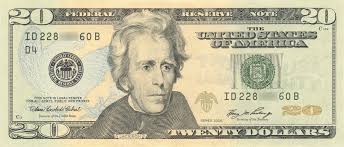And How Can That Help You Get Lucky?
A friend of mine was telling me the story of how she got the number from a handsome stranger she ran in to at the store. She told a tale of twists and turns–first his friend hits on her (not ideal,) then she gets a drink to stick around a while (let’s see where this goes..,) then the men go outside and she thinks she missed her shot (boo!) So she asks the cashier what’s the story with the handsome man (just curious)–they seemed friendly when he rang him up. The cashier says the handsome man is an old friend and a good person (yay!), then heads outside to clean up. After handsome man leaves–(all is lost!)–the cashier returns with his number, written on a business card (success!!) Apparently mystery man had asked about her too. What luck! What coincidence! But it’s actually there might be more to it than that.
Psychologist Dr. Richard Wiseman has been studying the science of luck. He gathered hundreds of people who self-identify as very lucky or very unlucky and put them through a host of experiments to see what are the different behaviors and approaches they exhibit. In my favorite experiment, he planted a $20 on the sidewalk and sent each participant for a walk down the street. The lucky ones noticed the $20 bill significantly more often than the unlucky ones. For those who believe in luck, this is great proof. For me, I’m wondering, why? Why do better things happen to people who feel lucky?
Wiseman says there are four factors that make lucky people lucky, and I want to focus on one: openness. Just like that $20 bill on the street, lucky people see more opportunities, especially unexpected ones. They are happier and relaxed, open to what may present itself. So when they cross paths with a $20 bill–bam!–It catches their eye and they grab it. Those people walking down the street weren’t looking for a $20 bill or expecting it, so it’s about being open to unanticipated opportunities. What makes the unlucky people miss this freebie?
Here’s a good explanation from Wiseman’s article “The Luck Factor”
“The harder they looked, the less they saw. And so it is with luck – unlucky people miss chance opportunities because they are too focused on looking for something else. They go to parties intent on finding their perfect partner and so miss opportunities to make good friends. They look through newspapers determined to find certain type of job advertisements and as a result miss other types of jobs. Lucky people are more relaxed and open, and therefore see what is there rather than just what they are looking for. ”
Just like the Robert Poynton’s Everything’s An Offer, lucky people “Notice More”
The same things happens when we play an improv game called Kitty Wants a Corner. In this game, the group is in a circle, with one person, the “Kitty,” in the middle. The Kitty wants to take someone’s spot on the outside: a nice corner to curl up in. The Kitty goes up to someone in outside of the the circle and says, “Kitty wants a corner.” The person on the outside responds, “Go ask my neighbor.” While the kitty continues to engage people on the perimeter, people on the perimeter of the game are making eye contact with each other, silently coming to agreement, and sneakily switching places in the circle. The Kitty should try to grab one of these open spots while someone is switching, making someone who switched a little too slowly become the new Kitty in the middle. Basically there is a task at hand: saying, “Kitty wants a corner” that distracts people from their goal, which is finding an opening in the circle. And for most people who play this game for the first time, they are terrible at it, missing openings left and right. You will watch all these openings happen all around the Kitty while they keep asking the person right in front of them for a corner. They get stuck in the middle for ages. It’s hard to believe how bad people can be at this game.
So what’s going on here? When people are on the spot and feeling anxious, they get tunnel vision. They tend to work hard to focus on what’s right in front of them, and they miss out on everything in their periphery, including the solution to their problem. In improv training, we work on soft focus, even when you are under pressure. We practice opening up our awareness by relaxing, getting in touch with our sensations, and taking our focus outside ourselves and on to others. With practice, we can start to see more of what is there, even when we are talking or distracted with another activity.
You can imagine the applications here. What happens when people are able to relax and see the opportunities right in front of them, which are not necessarily the ones they’ve been looking for, but might be the easiest to capitalize on? This strategy is useful in management, dinner preparations, or just playing in the yard.
It makes me think of dating. I’ve been back in the dating world for about a year and a half. And at some point I was wondering: what am I doing? I have no plan. I’m just kind of going on dates. Meeting people on apps, in person, being asked out, asking people out. I don’t know what I’m supposed to do. And I felt like I must be doing it wrong. I mean I was having fun but it seemed like most people had more strategic approaches. They had checklists and strategies and rules galore.
Then I was listening to relationship expert Esther Perel and she was talking about the problem with the “checklist mentality” when it comes to dating. Not that we don’t all have a few deal breakers, but when we go in with our check list at the top of mind, most often what we see is someone who does not meet our standards. And we miss that $20 bill sitting across the table from us. Maybe they are a great listener, or worldly or silly or something that isn’t on our checklist at all–something we didn’t know we wanted or makes us happy until we experience it.
Which makes me think of Daniel Gilbert’s Stumbling On Happiness. One of the main take aways I got from reading that book (which I think of often, though I read it over 10 years ago) is that we are not great predictors on what will make us happy. So it might be that what is on your list isn’t actually the right answer. So going in with that checklist we might be looking for the wrong things and missing the right things–the things we didn’t even know to look for.
Combine this with Barry Schwartz’s Paradox of Choice–the counterintuitive idea that the more options you have, the less satisfied you are with your selection. From the FOMO of ordering at a new restaurant then doubting your decision as trays of food are carried past, to eyeing the new guy at the bar while you wait to meet your boyfriend, to standing paralyzed in the shampoo aisle at the drug store. The idea that we just need to search through all the options, compare them to our checklist, and then make the best decision–it makes total sense and it’s often a terrible strategy for personal satisfaction.
So what could we do instead when looking for love, solutions, or resources? How about adopting an attitude of the lucky ones? Relax, open up to new experiences, notice more of what’s around you, be optimistic about potential outcomes, and if things don’t work out, try to make the best out of a bad situation. Starting with what’s in front of us and giving it a try might be a much more successful strategy in life and love–and bonus–it’s faster and easier too!
So maybe you have to feel lucky–and therefore be open to opportunities and experiences–to get lucky.



